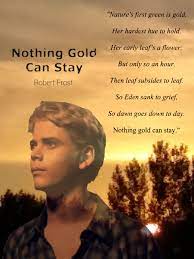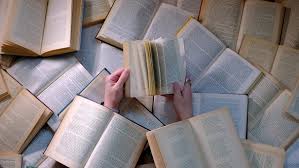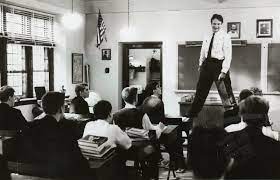
For me, Christmas creates both anticipation and dread. There’s the undertow of nostalgia, for one. That tug toward childhood — a time when warm meals magically appeared at the table, dirty clothes found their way to your dresser drawers smelling clean and neatly folded, and bills were names of men vs. “pay up” statements arriving in the mailbox with startling regularity.
But the demands of Christmas can get to you, too. All that gift buying, food purchasing, entertaining, overeating, and now, Covid-dodging during a time of family and friends.
Traditionally, I’ve been a Christmas Eve guy because, for me, it focuses more on anticipation than reward. Christmas Day? That tends to play out like that old Peggy Lee song, “Is That All There Is?”
Somehow, Christmas hype can’t keep pace with Christmas reality. And so, come Boxing Day, you’re ready to pack Christmas away and call it a season.
Why? Because, come the 26th, both tree and decorations look stale and cheesy. You want to box and banish it to its Basement Captivity (Babylon being busy), go all Kondo (a shout-out to Japan) and glory in a house with clean, sparse lines (and to Scandinavia) again.
I’ll admit, also, to a fondness for resolutions, hopeless or not. January 1st is not a drinking holiday for me because, long ago, I saw the futility in it (drinking is a little like Christmas Day in a bottle… more promise than delivery).
The Roman God Janus, who looks both forward and back, symbolizes New Year’s nicely. Resolutions, fertilized by regret, come from the past but are premised on the future. Thus, each New Year’s Eve, I typically try myself, find myself guilty, and sentence myself to some constructive service or other.
This new year it’s being more religious about keeping a writer’s journal. And, if Covid ever relents, fulfilling my retirement pledge to volunteer somewhere.
One needs distraction from oneself, after all, especially if one is trying to better oneself at “being human” (the impossibility of perfection being its appeal).
Meanwhile, the writing thing. It’s essentially Christmas Eve as an avocation, no? You write, revise, and anticipate. Sure, you get a lot of rejections, but there are those acceptances that sneak through the door, too, surprising you.
Then there’s the reward of seeing your writing published. And finding a few people who actually respond by obtaining, reading, and appreciating it.
The ‘22 fine print, then, looks like this: 100 rejections (a barometer of discipline in marketing your work) and 20 acceptances. Because 20% acceptance ratios are a good thing for non-famous writers who can’t coast on the reputation of their names. That doesn’t work when the reading public still knows you as “Who?”
How about YOU, fellow “Who’s?” What’s your 20%-is-better-than-nothing pledge to improve in ‘22?
Merry Divide-mas!

Arundel, Maine. Christmas Eve morning. My daughter is waiting in line outside The Lobster Co. Fishmarket for the shrimp and scallops we ordered for dinner. Two people behind her strike up a conversation – an older woman and an older man. But first the woman says, “Are you local?” When the man assures her that he is, the woman says, “Good. We can talk.” And talk they did, according to my daughter. For the 20 minutes it took to reach the register.
When she returned to the car with this story, she wondered what would have happened if the woman had directed the question at her (a visitor from Minnesota). Heck, I wondered about myself. What exactly was this woman’s definition of “local”? I moved here from out of state three years ago. Would I pass muster as “local goods”? Somehow, I fear not.
Judge This Book by Its Cover

In The New York Times Books section, I read a short piece on new books scheduled for release in January. One that looked interesting was Barbara F. Walters’ How Civil Wars Start: And How to Stop Them. Looking at the book’s cover, I’m amazed at how small the subtitle’s font is. Heck, to my mind, How to Stop Them is the important part! Why is it barely discernible beneath the burning, provocatively red How Civil Wars Start?
It’s depressing to think that more readers might be interested in how our country will get ripped apart than in how we might prevent it by going after politicians and media outlets promoting it.
Love and Other Poems: Alex Dimitrov

Reading this collection brought up the uncomfortable question (for a poet reading another poet): When is poetry self-indulgent? On the one hand, this collection contains the 10-page list poem, “Love,” included in Tracy K. Smith’s Best Poetry for 2021 anthology (and deservedly so). On the other, this collection contains more than a few solipsistic lines that had me scratching my head. For my full Goodreads review, jump down this rabbit hole.
Eternal Abe

If you look at Abraham Lincoln quotes, you might wonder how so many of his thoughts seem like they were written at 10 o’clock this morning. There’s a reason for that, of course. For the past five years, there have been a lot of Jefferson Davis-types working hard at turning Americans against each other.
Here’s a great quote showing why we wish Honest Abe walked among us today. Nothing is as simple as it looks at first glance, especially if it’s a beloved abstraction like liberty:
“The shepherd drives the wolf from the sheep’s throat, for which the sheep thanks the shepherd as a liberator, while the wolf denounces him for the same act as the destroyer of liberty. Plainly the sheep and the wolf are not agreed upon a definition of the word liberty; and precisely the same difference prevails today among us human creatures, and all professing to love liberty.”










